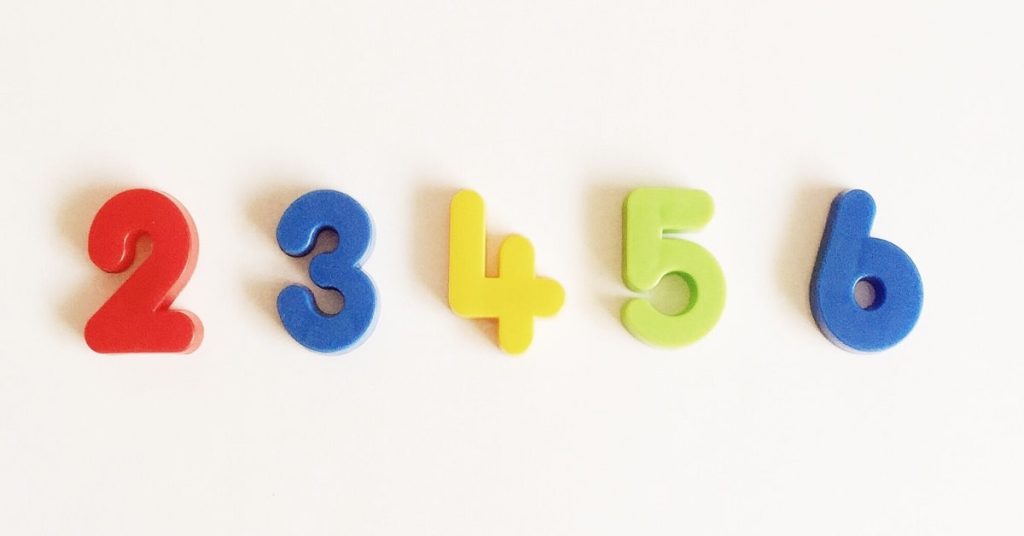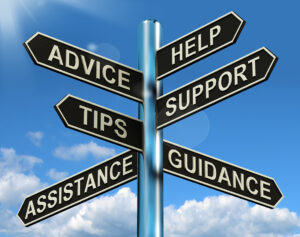Do you check the same door handle multiple times to make sure it’s locked? Do you count your steps when you walk? If so, you may be suffering from OCD with numbers. This type of OCD is characterized by an obsession with counting and checking. People with OCD with numbers often feel the need to check and recheck things over and over again. If this sounds like you, there are ways to overcome OCD with numbers. In this blog post, we will discuss some of the best strategies for overcoming OCD with numbers.
Contents
OCD With Numbers: Meaning 
OCD with numbers can be a very debilitating condition. If you suffer from OCD with numbers, you may find yourself counting things obsessively or checking things over and over again. This can be extremely frustrating and can make it difficult to concentrate on anything else.
What Are The Symptoms?
OCD with numbers can manifest itself in several ways. Some common symptoms of this mental disorder are:
- organizing everything in life by numbers
- focusing on lucky and unlucky numbers
- feeling the need to count or check things excessively
- having difficulty concentrating on anything else other than the numbers
- being unable to stop thinking about numbers or certain numerical patterns
- obsessively performing mathematical calculations in your head
- avoiding activities, places, or people that trigger your obsession with numbers
- feeling anxious, stressed, or even panicked when you can’t count or check things
What Are The Risk Factors?
Many risk factors can cause OCD with numbers. Some of these include:
Mathematics anxiety 
When someone has mathematics anxiety, they may be afraid of making mistakes or they may feel like they are not good enough at math. This can lead to OCD with numbers, because the person may start to obsess over numbers and try to count everything in their environment.
For example, someone with maths anxiety can start to count the steps they take, the number of times they blink, or the number of people in a room. This can be extremely distressing and it can make it very difficult for the person to focus on anything else. Or somebody with this type of OCD might avoid using the number 13, or need to keep all their belongings in perfect symmetry.
Having a stressful or chaotic home life
Many things in life can be stressful or chaotic and this can often lead to OCD with numbers. For some people, it may be their job or home life that is causing them stress and anxiety.
For instance, people who work in fast-paced environments or who have a lot of responsibility may find that they start to count things or check things more frequently. This is because they are trying to find some sort of order in their lives. Another example is if someone is going through a divorce or has recently lost a loved one, they may also start to develop OCD with numbers.
Having certain personality traits
Certain personality traits can make a person more prone to developing OCD with numbers. For example, people who tend to be perfectionists are more likely to become obsessed with numbers and need to count and check things more often.
People who are anxious or have a lot of worries tend to also develop OCD with numbers. This is because they are constantly worried about things going wrong and so they need to check and count things more often to try to control the situation.
Using drugs or alcohol excessively
Excessive use of drugs or alcohol can lead to OCD with numbers. For example, a person may start to compulsively count how many drinks they have had in a day, or how many pills they have taken.
Another way drug or alcohol cause OCD with numbers is by inducing paranoia. A person may become convinced that they are being watched or monitored, and start to compulsively check things like the locks on their doors or the time. This can lead to a feeling of being out of control, and the person may start to obsessively count or check things as a way to regain a sense of control.
Experiencing trauma or abuse 
Trauma and abuse can lead to OCD with numbers in a few different ways. One way is that the individual may start obsessively counting and checking things as a way to control their environment.
This can be things like counting how many steps they take to the car, or checking that all the doors are locked multiple times. For some people, this may also include compulsively touching things or tapping them a certain number of times.
What Are The Consequences?
OCD with numbers can have several consequences, including:
Difficulty completing everyday tasks
OCD with numbers can make it difficult to complete everyday tasks. For example, if you are OCD with numbers and have to take a bus to work, you may have to wait for the bus to arrive at the exact number that you are thinking of before you can get on.
Or if you have to do the grocery shopping, you may have to count all of the items in your cart before you can check out. This can take a lot of time and may result in you having to leave items behind.
Problems at work or school 
Counting and checking can interfere with productivity, leading to problems at work or school. OCD with numbers can result in several problems at work or school.
For example, a person with OCD with numbers may spend an excessive amount of time counting or checking things, which can interfere with their ability to complete tasks promptly. In severe cases, OCD with numbers can even lead to a person losing their job or dropping out of school.
Social isolation
People suffering from OCD with numbers often have rituals and compulsions that they feel they need to do to feel comfortable or safe. These rituals can take up a lot of time and can be very isolating.
For example, someone with OCD with numbers might need to check their locks several times before they leave the house or they might need to count objects in a certain way. This can make it difficult for them to interact with other people or to participate in activities because they are so focused on their rituals.
Anxiety and depression
OCD with numbers often results in anxiety and depression. This is because sufferers are constantly counting and checking things, which can be very stressful.
For example, someone with OCD might have to check that their car doors are locked several times before they can drive away. This can cause a lot of anxiety and can make it difficult to live a normal life. You may become a victim of anxiety and depression because of your preoccupation with numbers if you have OCD.
What Are The Treatment Options? 
There exist a wide range of therapies and self-help solutions that help manage and overcome OCD with numbers in points.
- Cognitive behavioral therapy: OCD with numbers is a type of OCD where the sufferer has obsessive thoughts about numbers and feels the need to count or check things excessively. CBT can help patients with OCD with numbers by teaching them how to manage their thoughts and behaviors.
- Exposure and response prevention: ERP can help break the cycle of OCD with numbers and allow people to learn that their fears are not as dangerous as they seem. For example, someone with OCD who is afraid of numbers may start with exposure to simple math problems and then progress to more difficult equations over time.
- Acceptance and Commitment Therapy: ACT helps you learn to accept that thoughts are just thoughts. For example, just because you have a thought that says “I’m a terrible person” doesn’t make it true. You can learn to observe your thoughts and see them for what they are – just thoughts. The second step is to commit to values-based living. For example, if one of your values is relationships, you might have to face your fear of germs and hug your loved ones, even if it’s tough. These can help you manage and recover from OCD with numbers.
- Dialectical Behavior Therapy: DBT would teach the individual how to manage their obsessions and compulsions related to numbers. This might include learning how to identify when they are starting to become fixated on a certain number, and using coping mechanisms to distract themselves from the obsession. By learning these skills, the individual suffering from OCD with numbers can begin to manage their disorder and live a more balanced life.
- Mindfulness-Based Cognitive Therapy: One of the key ways that MBCT helps people with OCD is by teaching them how to observe their thoughts and feelings without getting caught up in them. This helps to break the cycle of rumination and obsession that can often characterize OCD. Additionally, MBCT teaches people how to relate to their thoughts and feelings in a more accepting and non-judgmental way. This can help to reduce the intensity of OCD symptoms and the distress that they cause.
- Self-Coping Solutions: One strategy is to keep a mental or physical list of things that need to be done in a day, and then cross them off as they are completed. This can help to provide a sense of accomplishment and progress and help to reduce the urge to keep checking and rechecking items. Additionally, find healthy coping mechanisms for stress and anxiety. Some people find that exercise, journaling, or deep breathing exercises can help to reduce the symptoms.
Finally, it is important to remember that recovery from OCD is a journey. There will be ups and downs along the way but in the end, you will surely win if you stick to the right strategy. The most important thing is to keep moving forward and to seek professional help if the symptoms become too overwhelming.
Conclusion
At the end of this article, it is concluded that OCD with numbers can be stopped by Acknowledging that the thoughts are just thoughts and not reality, Not giving in to the urges, Finding a healthy outlet for the OCD, and Seeking professional help. With these tips, it is possible to control and manage OCD with numbers.
If you or someone you know is struggling with OCD, don’t hesitate to reach out for help. There are many resources available to you. You are not alone in this. You can live a life free from OCD. Start your journey today. There should always be hope for a better tomorrow.
Professional Guidance is the first step to moving toward your healing journey. You can try reaching Therapy Mantra to seek expert help in the comfort of your own home. Our therapists will help you get a solution to manage and overcome your problem. You can book your online therapy and talk directly to your assigned mentor. You may also download our free OCD treatment app on Android or iOS.







